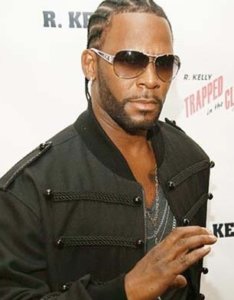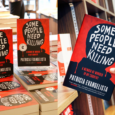In the #MeToo era, more and more authority figures are being exposed as abusers. Many people we once put on pedestals are being peeled apart for their terrible behavior, awful mindsets or prejudices, and the harassment they carry out behind closed doors (or sometimes even in public). These figures are sometimes figures we’ve looked up to all our lives, people whose tunes we hum along to on our daily commutes. It’s devastating to know that someone whose music we tapped our feet to might have hurt other people. But what do we do when we have to face that?
Remix to ignition / put this guy in prison
I can’t deny that some of those songs were bangers and, well, it makes me feel kind of sour when I find myself still nodding along. As soon as I catch myself, I feel kind of sick.
What should I do knowing that the person who made this song probably abused, damaged, and ruined a life (or more)?
A lot of people end up asking about how to feel once confronted with this reality.
They love the song, probably have it on repeat sometimes and all, but now it feels bad. Should we separate the art from the artist? Should we view this from a perspective that doesn’t include the artist’s history in the art they make? Can people really still enjoy objectively fun songs while ignoring the fact that their creators are possibly terrible people?
Hearts all over the world tonight / were pissed when Rihanna was beat up that night
A friend used to say that he didn’t like to think about the history behind songs he loved. But is that right? When we support an artist for their music, we funnel money into their pockets. They continue to rise in fame (or infamy) and influence and power (oh, capitalism) and because we view them as such powerful people, they approach this untouchable status.
With fans rallying behind them, too, debates spark and further ignite anger for or against the artist. And with this support, they can continue to run away from their problematic actions. We make celebrities so untouchable that they don’t pay for their injustice the way we non-celebs are expected to. And the more money they have, the easier it is for them to post bail, to hire slimy lawyers, and all that jazz.
So is our penchant for listening to their music and indirectly handing more of our hard-earned cash to them really separate from their histories of abuse? I don’t think so. It’s too closely-linked. Focusing purely on the form is so difficult when they directly benefit from our support and make themselves out to be untouchable and evade the justice they must be served. When we make celebrities bigger than the crimes they commit, we make them feel like they don’t have to serve their time.
I firmly believe that we can’t keep forking over our money to them. It’s a choice we make to cut it out.
Because when we play it, especially with others in our general vicinity, we might be sending messages of acceptance. “Yeah, he was awful but this beat, doe.” No, that’s not right. We deplore the musician for their actions and making music is one of their actions, too, an action that earns them influence, power, and money–all things they can use to continue hurting others and carrying out abuse.
Why listen to the voices of these abusers on your tracks when their victims haven’t been able to lift their own voices above the noise? It’s disorienting, but we have to listen to those they’ve hurt.
What do you think? Let us know!






